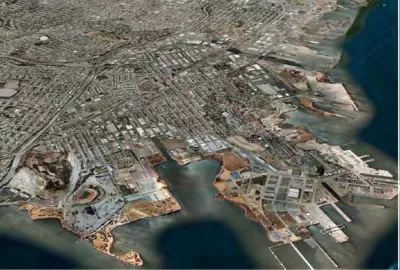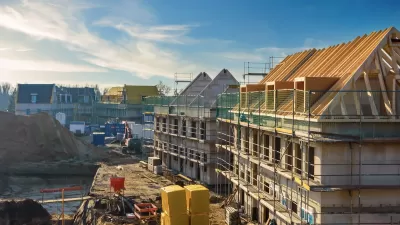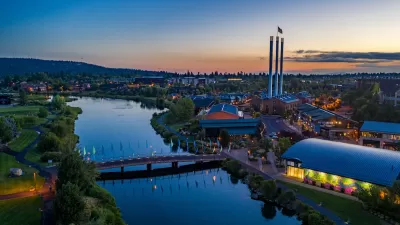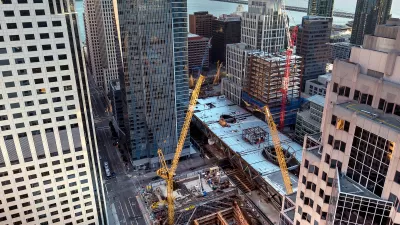Plans for numerous large-scale developments in the region mean thousands of housing units should be on the way, but constant delays and setbacks have left projects nowhere near completion.

"At a time when housing is needed as soon as possible to stem the tide of displacement and homelessness, at least 75,000 units in the [San Francisco] Bay Area are part of mega-developments — mostly on former industrial or military sites — that are frequently sidetracked for years or even decades due to long approval processes, high infrastructure costs, complicated environmental cleanup issues and financing difficulties," writes J.K. Dineen.
Three San Francisco redevelopment projects planned almost a decade ago — Hunters Point Shipyard, Treasure Island, and Parkmerced — will add 27,500 units to the city’s housing stock. But the projects are not close to delivering the affordable housing that the city desperately needs.
"While the projects look promising on paper, the reality has been different. After nine years, only 350 homes — 1.3% of the total — have been completed. Even as housing prices have skyrocketed and developers have scrambled to build condos and apartments, progress at the three mega-developments has languished," says Dineen.
The Bay Area has seen some megaproject successes, but critics say these larger, costlier developments are not the best strategy for tackling the state’s dire housing crisis, notes Dineen. "While the state is pressuring communities to build their fair share of housing, megaprojects allow politicians and planners to take credit for permitting lots of units, giving them political cover when downsizing, delaying or rejecting smaller infill housing projects that would actually get built, said state Sen. Scott Wiener, D-San Francisco."
FULL STORY: Bay Area megaprojects fail to deliver on big housing promises

Planetizen Federal Action Tracker
A weekly monitor of how Trump’s orders and actions are impacting planners and planning in America.

Restaurant Patios Were a Pandemic Win — Why Were They so Hard to Keep?
Social distancing requirements and changes in travel patterns prompted cities to pilot new uses for street and sidewalk space. Then it got complicated.

Maui's Vacation Rental Debate Turns Ugly
Verbal attacks, misinformation campaigns and fistfights plague a high-stakes debate to convert thousands of vacation rentals into long-term housing.

In California Battle of Housing vs. Environment, Housing Just Won
A new state law significantly limits the power of CEQA, an environmental review law that served as a powerful tool for blocking new development.

Boulder Eliminates Parking Minimums Citywide
Officials estimate the cost of building a single underground parking space at up to $100,000.

Orange County, Florida Adopts Largest US “Sprawl Repair” Code
The ‘Orange Code’ seeks to rectify decades of sprawl-inducing, car-oriented development.
Urban Design for Planners 1: Software Tools
This six-course series explores essential urban design concepts using open source software and equips planners with the tools they need to participate fully in the urban design process.
Planning for Universal Design
Learn the tools for implementing Universal Design in planning regulations.
Heyer Gruel & Associates PA
JM Goldson LLC
Custer County Colorado
City of Camden Redevelopment Agency
City of Astoria
Transportation Research & Education Center (TREC) at Portland State University
Jefferson Parish Government
Camden Redevelopment Agency
City of Claremont





























